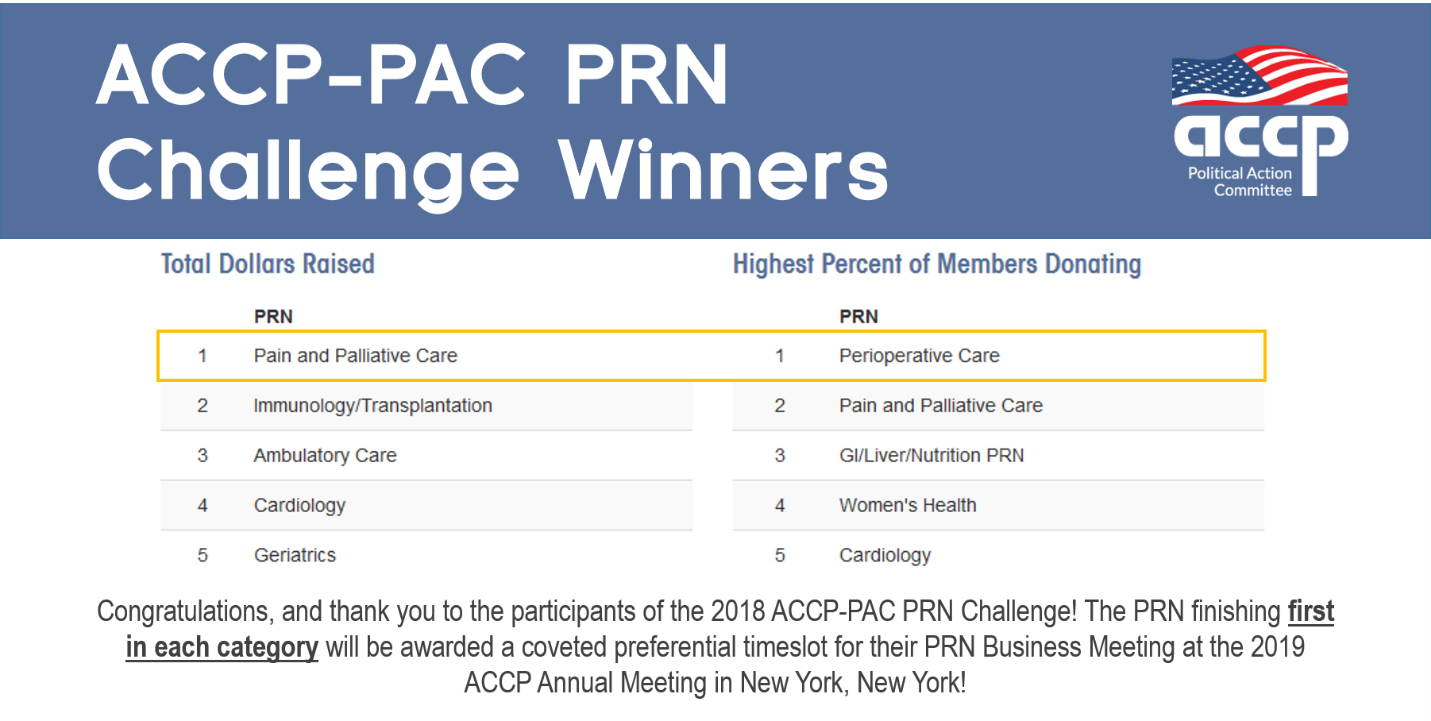For the fourth consecutive year, in conjunction with the ACCP 2018 Global Conference on Clinical Pharmacy in Seattle, Washington, ACCP-PAC organized the Political Action Committee (PAC) PRN Challenge to determine which PRNs can generate the greatest PAC support. Throughout the 2018 challenge, PRN members who contributed to the PAC online could designate a PRN to receive credit for their contribution. This year’s PRN Challenge recognized two winners:
- Perioperative Care PRN for the highest percentage of members who contributed.
- Pain and Palliative Care PRN for the most total dollars raised.
In recognition of their support, the winning PRNs will receive a coveted preferential timeslot for their PRN business meetings at the 2019 ACCP Annual Meeting in New York, New York, October 26–29. ACCP-PAC would like to thank all ACCP members who participated in this year’s challenge and contributed to ACCP-PAC.
Why Does ACCP Have a PAC?
A political action committee (PAC) is a registered, federally regulated “separate segregated fund” organized to raise and spend money that helps support candidates for congressional office.
In 2010, the ACCP Board of Regents established ACCP-PAC to allow the College to actively support the campaigns of members of Congress who share the College’s core values and policy vision, just as ACCP is active in asking these elected officials for their support in advancing the College’s shared policy goals. Running for federal office is expensive, and members of Congress rely on contributions from PACs to fund their campaigns.
ACCP-PAC is nonpartisan and supports candidates regardless of political party affiliation. ACCP-PAC is member-driven, and its strategic policy decisions – including those related to which candidates receive financial contributions from ACCP-PAC – are made by the PAC Governing Council.
Although we are realistic about the continued dysfunction in Washington, D.C., and the lack of focus at the leadership level on many of the key health policy questions facing our country, we are encouraged by the depth of understanding across congressional and agency offices and at a staff level on complex issues such as team-based care implementation and the energy and creative thinking we see in moving these issues forward.
PAC contributions allow ACCP members to collectively donate to support members of Congress who understand that medication optimization by “getting the medications right” is central to the success of team-based patient-centered, quality-driven health care delivery and payment.
To contribute, visit the ACCP-PAC website at www.accpaction.com.
